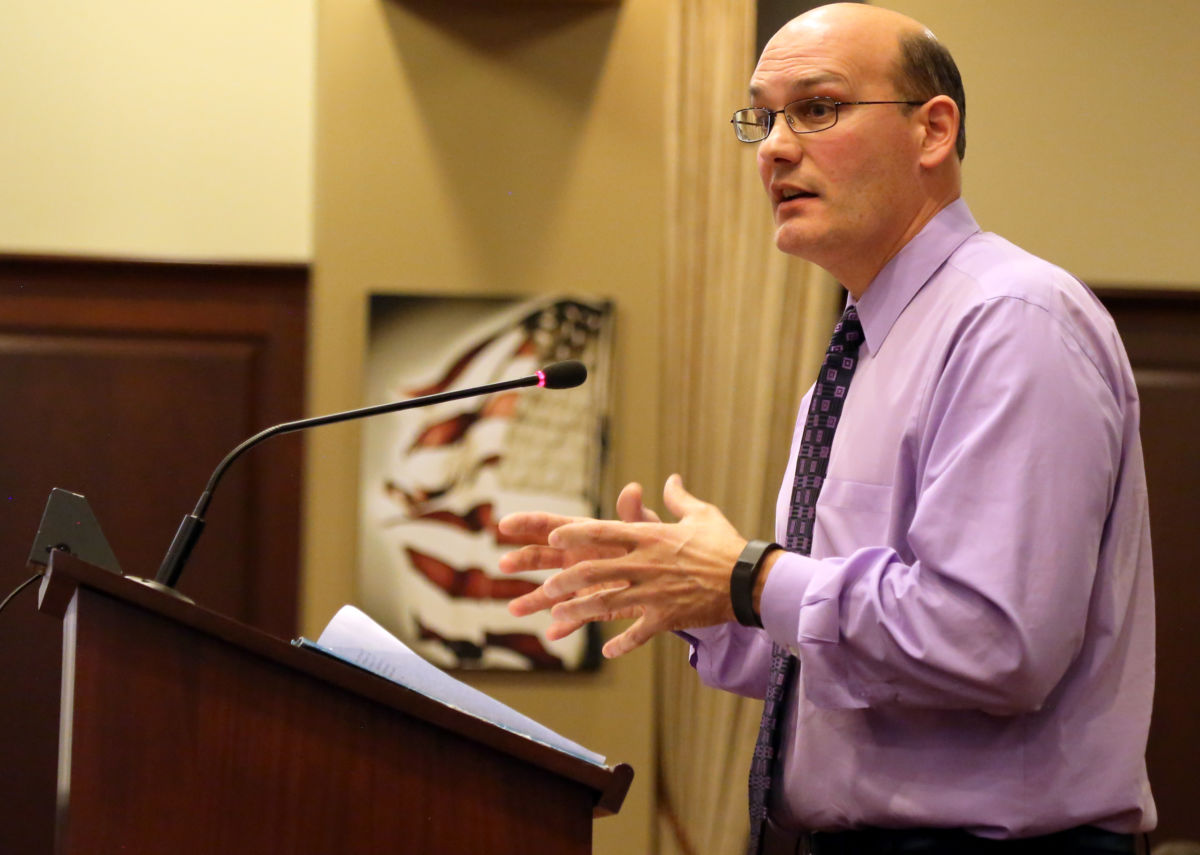After taking two hours of testimony Thursday — from scientists and students, from teachers and parents — the Senate Education Committee took no vote.
Instead, they put a set of science standards on hold until Monday afternoon. And that means the Senate and House education committees might have the chance to haggle over language referring to climate change.
The proposed, and temporary, standards have the blessing of Gov. Butch Otter and the State Board of Education. But the standards hit resistance in the House Education Committee. On Feb. 9, the House committee voted to delete the sections on climate change, with Rep. Scott Syme, R-Caldwell, arguing that the wording failed to address “both sides of the debate.”

In the wake of the House vote, Senate Education members appeared to agonize over their options. If the House and Senate committees fail to agree on some version of standards, Idaho teachers will be forced to go back to old science standards written in 2001.
State superintendent Sherri Ybarra urged the Senate to make sure something passes. “We need standards that reflect the reality of today.”
But Ybarra also said she preferred the standards in their original form, including the references to climate change.
That was the overwhelming sentiment from Thursday’s testimony. Twenty-three speakers took to the podium. All but one urged senators to approve the standards and leave the climate change language intact.
“The earth is warming and people are the cause, period,” said Jennifer Pierce, a Boise climate change scientist and parent. She said Syme and other skeptics are living through “the five stages of climate grief.”
Said Veronica Richmond, an 11-year-old elementary school student from Garden City, “We deserve to know the truth about our human impact. … Please don’t cut our learning and education short.”
Testimony was at times colorful. At one point, teacher Jennifer LaForge referred to NBA star Kyrie Irving, who recently made comments suggesting the Earth is flat.
The hearing also was punctuated with a few tense exchanges.
Retired ecologist David Greegor said the decision to delete references to climate change was akin to book burning — a comment that drew a reprimand from Sen. Steven Thayn, R-Emmett.
A couple of speakers criticized Sen. Chuck Winder, R-Boise, who started the hearing by downplaying the references to climate change. Pointing out that the standards contain 370 other sections, Winder asked Ybarra, “Are we fighting over the crumbs?”
Winder walked his comments back later in the hearing. He said he was trying to argue for passing something this year, while trying to iron out language over climate change.
State academic standards are not uniform. They establish a minimum benchmark, and districts can choose to go into more depth — which means teachers could address climate change, regardless of what lawmakers decide. The Boise district has had a variation of the state standards in effect for two years, said Chris Taylor, a district curriculum supervisor who helped develop the proposed standards.
But that doesn’t mean the standards are meaningless. The standards provide a guidepost for beginning teachers, said Sen. Janie Ward-Engelking, D-Boise, a retired teacher.
Thursday’s delay will give members of the Senate and House committees a chance to talk over their options — albeit behind the scenes. Senate Education won’t meet again until Monday, and that’s the date scheduled for a vote.
The committee will not take any additional testimony Monday, said committee chairman Dean Mortimer, R-Idaho Falls.
And even if the Senate and House committees find common ground and adopt some form of standards this session, the issue will be back in 2018. Lawmakers would have to revisit the temporary standards — and, possibly, rekindle their climate change debate.
Funding formula committee
In other news Thursday, the Legislature’s Public School Funding Formula Interim Committee is one step closer to getting back to work.
House Education advanced House Concurrent Resolution 12, which would reconvene the committee this year.
Legislators created the interim committee in 2016 and tasked its members with developing recommendations to update and improve the state’s complicated school funding formula.
The committee always expected its work to take two years, and spent 2016 meeting with educators and education groups across the state, collecting feedback and analyzing the existing funding formula.
Unchanged since 1994, the state’s current funding formula is an attendance-based model that drives the distribution of nearly $1.7 billion in public school funding annually. But, the funding formula was established before the burgeoning charter school movement, online courses and dual credit programs, leaving its critics to say it no longer reflects the modern public education landscape.
If the resolution passes, the committee will spend 2017 developing recommendations to modernize the school funding formula, and issue a report on its findings to the 2018 Legislature.
The committee is seeking $400,000 in state funding, which it will use to retain a consultant or financial analyst and use software systems to simulate potential new school funding models.
“The consultant…will help us know how our ideas might play out at local districts so we can test this before we implement it and try to work out as many bugs as possible that might arise,” said Idaho Falls Republican Rep. Wendy Horman, the committee’s co-chairwoman.
HCR 12 next heads to the House floor, with a recommendation it pass.
Idaho Education News reporter Clark Corbin contributed to this report.
